
I read the most amazing book yesterday, "Gone Too Soon- The Life and Loss of Infants and Unborn Children." By: Sherri Devashrayee Wittwer. I felt like it expressed so much of what I was feeling and dealing with and I understood a lot of what I as well as other mothers are going through and why. She is LDS and so I love her perspective on it, but anyone of any faith I feel should read it. She is also a mother and has lost a baby through a miscarriage. It is one of those books that I want everyone to read, whether you have lost a baby through a miscarriage, ectopic pregnancy, stillbirth, or infant loss. I also feel that whether your friend, daughter, family member or neighbor lost a baby, you should read the book as well, I think it will help those who haven't lost a baby realize why it is so hard and help them to understand. I feel so strongly about this book and how its made me feel that I want to do a book review in a way, to just touch on a few things that jumped out at me. It is a short book and I read it in a little over an hour. I read most of it aloud to my husband too. One thing I loved, was a whole chapter dedicated to fathers and one also to grieving grandparents. I feel both are left out of the grieving process of a baby dying at any stage.
My husband new how much I loved the book and related that he suggested I touch on each chapter a bit, that way if you do not read it or if you are a family member or friend of someone grieving you may at least catch a glimpse as to why losing at baby at any stage of life is so difficult.
Chapter One: The life of an unborn child
"One of the most important commandments is to "multiply and replenish the earth," and the ultimate goal is an eternal family. Perhaps this emphasis on family and on bringing these spirits to earth contribute to the trauma when complications with childbearing arise. We know these babies are important. Therefore, it can be frustrating when we feel that we are trying to follow the Lord's commandments and still no healthy babies come. However, even though these babies are no allowed to live on this earth outside of their mothers bodies, they are significant human beings. Even physically, there is more to these babies-even the tiniest ones-than most people realize." I loved this chapter because it emphasized so much that even the tiniest baby, in the first few weeks is something, is a baby.
The fetal development is something of a miracle, I think it is truly amazing how most major developments in the unborn baby happen very early. At just 18 days the heart begins to beat and at 21 days it is pumping blood. At 40 days, the babies brain waves can be recorded on an EEG showing brain function, how amazing is that. In weeks 6-7 the babies first movements occur. The baby then around 9-10 weeks starts to squint, swallow, and move its tongue around. It can bend its fingers and in a 9 week old baby it has been shown in US's the baby sucking its fingers and toes. And by 11-12 weeks (3 months) the baby is breathing amniotic fluid and all body systems are working.
I find it truly amazing, a miracle, that the baby has everything with in the first weeks of life. Its in the ongoing months that the "details" the growth and development occur.
Its amazing that with today's technology that we as parents physicans are able to to get a peek into the life these babies. With this increase in knowledge and technology parents are more easily bonded with their baby. The bonding is more powerful than ever and so it makes the pain much more severe if a baby dies.
Many parents will tell you that their baby has a personality long before they are born. Dr. Liley states:
"Distinctions can be observed between foetuses before birth, not only in their physical appearance, in their physiological appearance, but also in their activity states, their responses to external stimuli. In other words, it is not just appearance, but also, behaviour, by which they can be distinguished."
I remember with all my kids the babies being different. Hudson was not a very active baby, kicking but not like Ruby, she was crazy. And I was just at the beginning stages of feeling Harrison but I remember feeling him move so early and feeling him move all the time. The Dr's said he was always ahead of schedule and I feel that being ahead of schedule and feeling him more was so that I would be able to feel and see a perfect baby.
The final question this chapter poses at the end is "when does life begin?" It is complicated as you can see that from the beginning of the embryo's life it is forming and becoming more and more of a baby everyday. But one fact they point out is that, "The life of the unborn baby is truly significant, and when a baby is lost, its is indeed the loss of something-someone-very special."
I hope you find this book or the excerpts I am sharing with you helpful as well. Feel free to tell anyone you know who is experiencing the loss of a baby in any way, whether them personally or someone they know, that they should read this book or at least stop by and read these posts, I have found it so helpful. And I hope in some way I can help others out there realize that the loss of a baby at any stage is difficult, because well, it was a baby.
My husband new how much I loved the book and related that he suggested I touch on each chapter a bit, that way if you do not read it or if you are a family member or friend of someone grieving you may at least catch a glimpse as to why losing at baby at any stage of life is so difficult.
Chapter One: The life of an unborn child
"One of the most important commandments is to "multiply and replenish the earth," and the ultimate goal is an eternal family. Perhaps this emphasis on family and on bringing these spirits to earth contribute to the trauma when complications with childbearing arise. We know these babies are important. Therefore, it can be frustrating when we feel that we are trying to follow the Lord's commandments and still no healthy babies come. However, even though these babies are no allowed to live on this earth outside of their mothers bodies, they are significant human beings. Even physically, there is more to these babies-even the tiniest ones-than most people realize." I loved this chapter because it emphasized so much that even the tiniest baby, in the first few weeks is something, is a baby.
The fetal development is something of a miracle, I think it is truly amazing how most major developments in the unborn baby happen very early. At just 18 days the heart begins to beat and at 21 days it is pumping blood. At 40 days, the babies brain waves can be recorded on an EEG showing brain function, how amazing is that. In weeks 6-7 the babies first movements occur. The baby then around 9-10 weeks starts to squint, swallow, and move its tongue around. It can bend its fingers and in a 9 week old baby it has been shown in US's the baby sucking its fingers and toes. And by 11-12 weeks (3 months) the baby is breathing amniotic fluid and all body systems are working.
I find it truly amazing, a miracle, that the baby has everything with in the first weeks of life. Its in the ongoing months that the "details" the growth and development occur.
Its amazing that with today's technology that we as parents physicans are able to to get a peek into the life these babies. With this increase in knowledge and technology parents are more easily bonded with their baby. The bonding is more powerful than ever and so it makes the pain much more severe if a baby dies.
Many parents will tell you that their baby has a personality long before they are born. Dr. Liley states:
"Distinctions can be observed between foetuses before birth, not only in their physical appearance, in their physiological appearance, but also in their activity states, their responses to external stimuli. In other words, it is not just appearance, but also, behaviour, by which they can be distinguished."
I remember with all my kids the babies being different. Hudson was not a very active baby, kicking but not like Ruby, she was crazy. And I was just at the beginning stages of feeling Harrison but I remember feeling him move so early and feeling him move all the time. The Dr's said he was always ahead of schedule and I feel that being ahead of schedule and feeling him more was so that I would be able to feel and see a perfect baby.
The final question this chapter poses at the end is "when does life begin?" It is complicated as you can see that from the beginning of the embryo's life it is forming and becoming more and more of a baby everyday. But one fact they point out is that, "The life of the unborn baby is truly significant, and when a baby is lost, its is indeed the loss of something-someone-very special."
I hope you find this book or the excerpts I am sharing with you helpful as well. Feel free to tell anyone you know who is experiencing the loss of a baby in any way, whether them personally or someone they know, that they should read this book or at least stop by and read these posts, I have found it so helpful. And I hope in some way I can help others out there realize that the loss of a baby at any stage is difficult, because well, it was a baby.
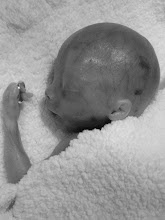

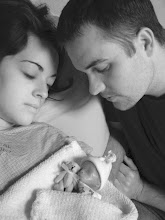



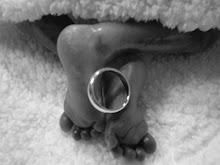

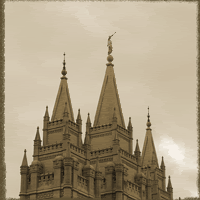


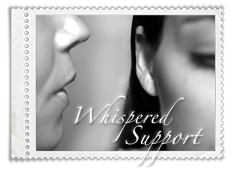
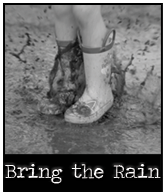



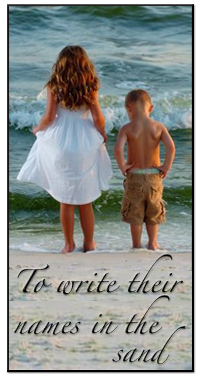
Oh sweet April, thank you for sharing this. I myself am not of LDS faith but this book just seems so uplifting in so many ways. It is true that a lot of books and even websites do not express the grieving process for fathers or even grandparents.
ReplyDeleteThis book is going on my wishlist, I think everyone in my family would benefit from it.
*hugs*
I am glad that you found a book that you like so much!! I am having Jake order it as we speak. So far I really like what you took from the book and I am really looking forward to reading it soon. Thank you!!
ReplyDeleteThanks for sharing...I have actually been keeping looking for a book dealing with infant death. I will check that one out.
ReplyDelete